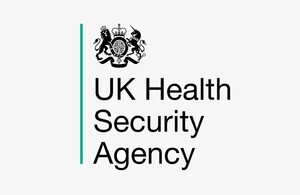Fri, 09 May 2025 04:53:04pm
Related Tags: Mpox outbreak 2024, WHO health emergency, Clade 1b mpox strain, UK mpox preparedness, Global health response mpox
WHO declares MPOX outbreak a public health emergency of international concern
WHO declares mpox outbreak a public health emergency of international concern
A surge in mpox cases across Africa has prompted the World Health Organization (WHO) to take decisive action. With the outbreak escalating in the Democratic Republic of the Congo (DRC) and spreading to neighboring countries, the WHO has declared it a Public Health Emergency of International Concern (PHEIC).
What does this mean for global health, and how prepared is the world to tackle this crisis?
In a significant development, the World Health Organization (WHO) has declared the escalating mpox outbreak in the Democratic Republic of the Congo (DRC) and across Africa as a Public Health Emergency of International Concern (PHEIC). This declaration, made under the International Health Regulations (2005), underscores the severity of the situation and the potential for the virus to spread beyond the continent.
The decision follows a thorough review by an Emergency Committee of independent experts who convened on August 14, 2024. The experts examined data from the WHO and the affected countries, concluding that the rapid rise in mpox cases, particularly due to the emergence of the Clade 1b strain in the DRC, posed a serious global health threat. Although no cases of Clade 1 mpox have been confirmed in the UK, the potential for international spread remains a concern.
The UK Health Security Agency (UKHSA) has expressed support for the WHO's decision, particularly the move to release funding aimed at improving vaccine access in lower-income countries and bolstering surveillance, preparedness, and response measures. Dr. Meera Chand, Deputy Director at UKHSA, reassured the public that while the risk to the UK remains low, preparations are underway to ensure readiness. These preparations include training clinicians to recognize symptoms, providing rapid testing, and developing protocols for safe patient care and preventing transmission.
Mpox, also known as monkeypox, typically presents with a skin rash or pus-filled lesions that can last between 2 to 4 weeks. Other symptoms include fever, headaches, muscle aches, back pain, low energy, and swollen lymph nodes. The virus is primarily spread through contact with an infected person or animal.

With the WHO's declaration, global attention is now focused on containing the outbreak and preventing further spread. The situation serves as a stark reminder of the interconnected nature of global health and the importance of swift, coordinated responses to emerging infectious diseases.
Key Points:
- WHO Declaration: Mpox outbreak in the DRC and Africa declared a Public Health Emergency of International Concern (PHEIC) by the WHO.
- Rising Cases: The emergence of the Clade 1b strain in the DRC has contributed significantly to the outbreak's escalation.
- Global Preparedness: The UK Health Security Agency (UKHSA) is preparing for potential cases in the UK, though the current risk is low.
- Symptoms and Transmission: Mpox symptoms include skin rash, fever, and muscle aches, with transmission occurring through contact with infected individuals or animals.
- Global Response: The WHO has released funding to support vaccine access and enhance surveillance in lower-income countries.
People are advised to follow the NHS advice on mpox.


